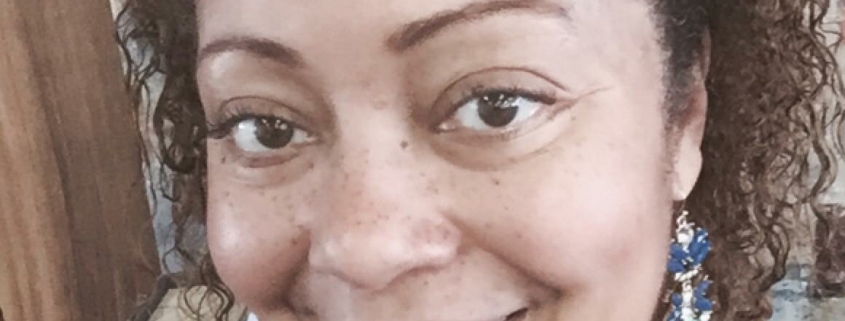Kiietti Walker-Parker
The Chronicles of Language: A Never to Repeat Failed Romance
By: Kiietti Walker-Parker
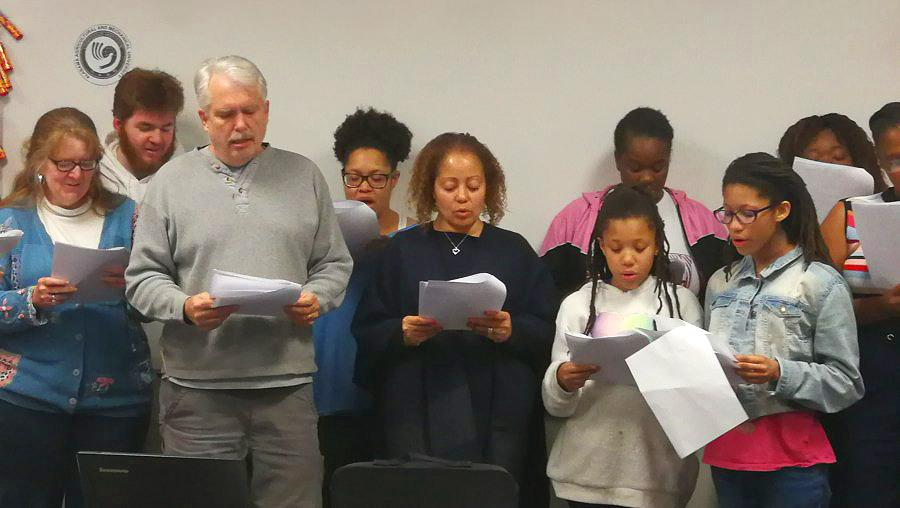
I had my first romance with language as a child. Growing up, language-wise, the only differences I encountered in Decatur, Georgia, a suburb of Atlanta nestled between a big city and smaller ones, were the various drawls of the voices of my grandparents and parents. The many connotations they signified were based on the specific instances in which they spoke. I loved their voices, which was either them speaking city or country or in between. For those unaware of what country is, it is city or rural with a Southern twang. The Southern twang is at a slower than usual speed and sweet with a lift at the end as if to entice the shirt off your back or the last bite of your grandmama’s sweet potato pie or nothing-but-butter-pound cake. Its citified version is also slow and sweet, but the lift is slightly noticeable, almost delicate-like. Outside of these language distinctions, very little involved other cultures in my community other than city or country folks. Yes, we did have Chinese, Italian, and Mexican restaurants, enjoyed their food, and visited often; however, I learned later that what we liked was not authentic foreign food, just recipes Americanized to fit our palettes. My early romance with language never had a chance.
Americans can learn much from Chinese people: how to maintain a culture, a language for thousands of years? How to merge both the old and the new?
Many people fall in love with television, even more so at an early age. I was no different. I watched tv in between school, classes, family time, and other activities. Actually, family time would often consist of sitting around watching television together. So, what did we love on tv? We watched Chinese, Italian, Mexican, French, German, and African cultures depicted, once again, Americanized to fit our tastes. We loved eating with chopsticks and Kungfu (who doesn’t like Kungfu fighting with Bruce Lee, an American icon); spaghetti and meatballs and The Godfather, an American movie which depicted an Italian immigrant family turned mafia in order to find success on America’s shores; Mexicans introduced enchiladas and tacos and wore bright colors with sombrero hats and played fiesta music and sang. Also, who would ever forget Mexican siestas, 2-3-hour naps in the middle of the day? To me, that in itself was Mexico’s gift to the world; the French were reduced to romance, love, perfume, and the Eiffel Tower; Germans were supporters of Adolf Hitler, the Berlin Wall, and responsible for the extermination of six million or more Jews during the Jewish Holocaust; and African culture had its people worshipping masked and scary beings who were barbaric in nature and only worthy of enslavement and brought to America for a “better” life. It’s embarrassing that I didn’t realize my own ignorance and naivety; I grew up a participant of propaganda, stereotyping, and the total disregard of people who were different than me and those around me. This is especially troublesome because those of my race and culture, African American, have too been and still often are victims of profiling and belittlement, and here I was growing up and doing the same thing to other people.
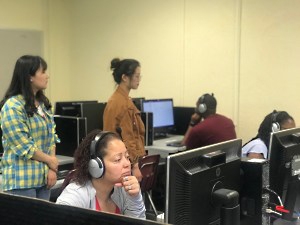 I decided to finally have a relationship with language in high-school and take a Spanish course. One of my friends took the course with me. Surprisingly, we both loved it. Our relationship turned romance was alive and in full effect. We learned the Spanish alphabet, phonetics, customs, culture, foods, and history by a very proud instructor from Puerto Rico. I even learned to understand some of what one of my uncles used to say to us at dinner and then laugh because we didn’t understand. We flourished from her accent, tone, enthusiasm, patience, and love of her country. She was kind, strong, and a bit of a firecracker. The entire class was in love and thrived my first year, but by the second, I found that we were simply surviving.
I decided to finally have a relationship with language in high-school and take a Spanish course. One of my friends took the course with me. Surprisingly, we both loved it. Our relationship turned romance was alive and in full effect. We learned the Spanish alphabet, phonetics, customs, culture, foods, and history by a very proud instructor from Puerto Rico. I even learned to understand some of what one of my uncles used to say to us at dinner and then laugh because we didn’t understand. We flourished from her accent, tone, enthusiasm, patience, and love of her country. She was kind, strong, and a bit of a firecracker. The entire class was in love and thrived my first year, but by the second, I found that we were simply surviving.
An A student, I had to work to keep it my second year. The class’s enthusiasm waned, and eventually, mine blew out altogether, as Mrs. Rodriguez decided to stay home and raise her baby which resulted in our new Spanish teacher who wasn’t Spanish, Hispanic, LatinX, or even Mexican. Instead, she hailed from Ohio, an American who spoke with the same accent we all had although not Southern or citified Southern. I no longer heard a Spanish accent, or the passion Mrs. Rodriguez had. Quickly, learning became difficult and too the romance we had and held.
I did not sign up for a third year of Spanish or French. My fear was that another American would replace the French, French teacher, thus failing the authenticity of what I would believe is instrumental when learning a new language. It’s best and ideally taught not only by those fluent in the language but by people brought up to the life-force of the language – natives. I began to see then how American-influenced even other languages become from their native roots in America. So, I halted any thoughts to any new language romances my high school junior year.
However, true romance can never die or be denied for long. Traveling has always been a mainstay in my family. We’ve crossed the Americas and ventured to Jamaica and the Caribbean, romantically dancing and swaying with different cultures, customs, sights, and people. I’ve crossed borders into Mexico and Canada and stamped a passport throughout Europe. My husband’s travels are vast too, traversing from Australia to Malaysia. Even though English is spoken globally, we’ve found it fun to learn words from the people we visit. Even more, we have a son now and aim to stoke the international travel bug in him. So far, he’s been to Italy in my belly and Greece. He’s an important reason for me to again, renew a language romance.
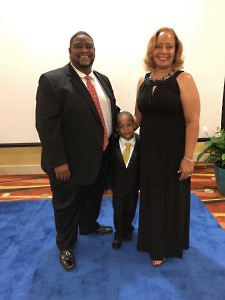 Asia has always been my dream to one day visit. I’ve wondered what it would be like to learn Chinese, a language that seemed so picturesque and beautiful just like an impressionistic painting, so unlike English which is Germanic in origin with infusions of German, Celtic, and French. If it were not for calligraphy and cursive writing, which many young people don’t learn or practice much today, I would not refer to handwritten English as a thing of beauty. Chinese is so different. In addition, English is about 700 years young while Chinese is the oldest living, continuous language at 5000 years old and very akin to its origin. Even though I knew this, it took me decades to choose romance again over fear and failure. The Confucius Institute launched on the Alabama A&M University’s campus in 2015. In 2018, I chose me; I stepped out on faith, and romance was renewed as I expressed vocally my commitment to learning Chinese.
Asia has always been my dream to one day visit. I’ve wondered what it would be like to learn Chinese, a language that seemed so picturesque and beautiful just like an impressionistic painting, so unlike English which is Germanic in origin with infusions of German, Celtic, and French. If it were not for calligraphy and cursive writing, which many young people don’t learn or practice much today, I would not refer to handwritten English as a thing of beauty. Chinese is so different. In addition, English is about 700 years young while Chinese is the oldest living, continuous language at 5000 years old and very akin to its origin. Even though I knew this, it took me decades to choose romance again over fear and failure. The Confucius Institute launched on the Alabama A&M University’s campus in 2015. In 2018, I chose me; I stepped out on faith, and romance was renewed as I expressed vocally my commitment to learning Chinese.
I’ve since been dedicated to the romance of learning what I wished I was aware of as a little girl growing up in the1970s in the South. As an African American wife, mother, writer, teacher, and life-long learner, it is important that I broaden my horizons beyond geography and demographic boundaries, as we are all connected intrinsically. Our world is a globe that revolves, and we are all evolving. No one person, gender, culture, or race is an island onto themselves as we are dependent on each other for knowledge, understanding, opportunity, happiness, and simply value. Americans can learn much from Chinese people: how to maintain a culture, a language for thousands of years? How to merge both the old and the new? How to respect both age in years (the filial virtue) as well as age in wonder (the young)? Each of us can learn from and, together, how to enhance what we already know for advancements in medicine, technology, environmental concerns, and just the uniqueness and ingenuity that each person, gender, custom, culture, community, nation, or continent brings.
I took Chinese initially to see if I liked it. I was amazed as I was challenged. With the newness of pinyin, tones, accent, characters, and the difference in direction of reading left to right, it was not only tough but fun and inspiring, how romantic! I knew that I would not give up. My professors encouraged me to join the Chinese club and take HSK tests I and II. Courses on Chinese writing, characters, and culture showed me the story of their humble beginnings, beliefs, and values. From Confucius, Mozi, Laozi, and Zhuangzi to Kungfu and Tai Chi, I learned how history is woven into the fabric of China today as well as respect and reverence the serving of tea is, familial relationships, and virtues they maintain with the young and elders. My newfound awareness is invaluable. The Confucius Institute showed me the spirit of Chinese culture and its people; they are more than chopsticks and Americanized Chinese food. In class, I finally found a relationship, love not failure.
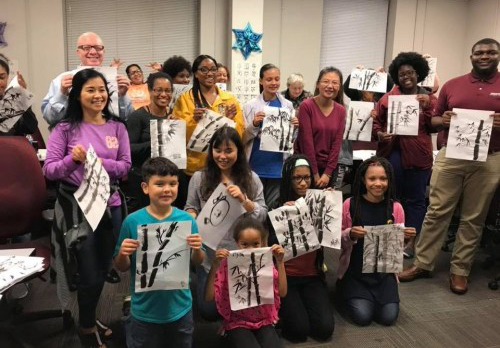
Kiietti Walker-Parker
Confucius Institute at Alabama A&M University
Undergraduate Educator
Madison, Alabama
A Georgia (USA) native, Kiietti Walker-Parker has been teaching, instructing, and guiding students for 17+ years at Alabama A&M University. A former engineer and computer scientist, she has a Master of Arts in English and a Master of Fine Arts in Creative Writing. Her teaching aims to encourage students to soar in English and writing and love it.
An avid reader, she loves to learn, research, and write. She has presented in Baton Rouge, LA, USA; Providence, RI, USA; and Birmingham, AL, USA and has read her creative works in Italy, France, Ireland, The Czech Republic, Germany, and Greece. She has been the recipient of the Association of College English Teachers of Alabama (ACETA) John Calvert and the James Woodall Awards for writing on pedagogy and research as well as an honorable mention of the same John Calvert Award.
Presently working on two novels, short stories, and poems inspired by her own ancestral heritage and life, she loves to travel and explore new and different cultures. She and her husband, Arbie, enjoy exploring through the eyes of their inquisitive and enthusiastic son Aiidin.

